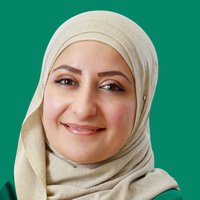Biotechnology & medicine
Kaitlyn Sadtler
Her test was among the first to determine how many people had been infected with covid-19.
BRET HARTMAN / TED

Asia Pacific
Zhixing Cao
Revealing cell biological mechanisms using mathematical modeling.

MENA
Mohamed Abdelaziz
A versatile, MR safe robotic platform to assist physicians in treating patients with cardiovascular diseases

China
Xiaojing Gao
Diving into the tiny brains of fruit flies and forging circuits that program human cells.

MENA
Atheer Awad
3D printing for personalized medications
